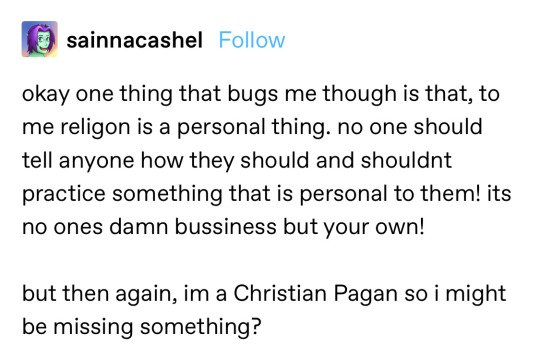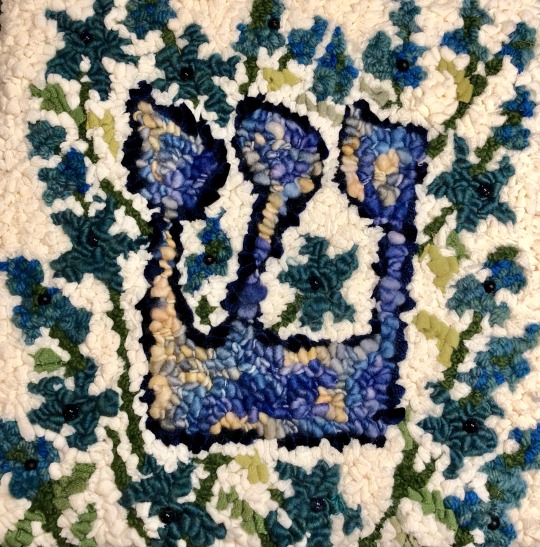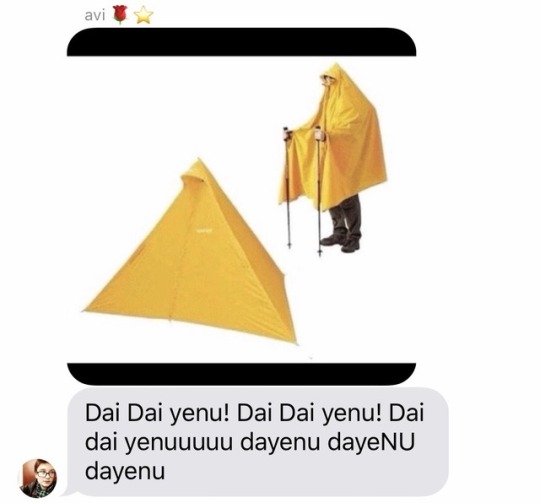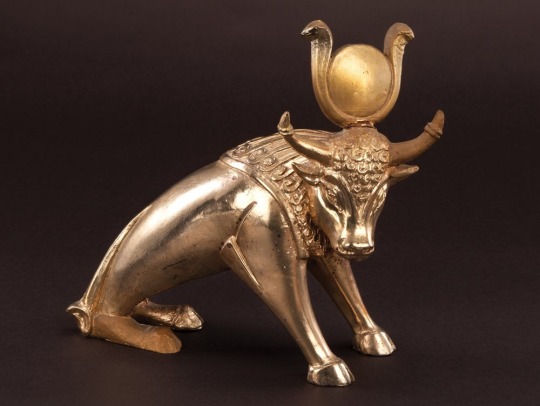Text
I‘m so angry and disgusted right now. I read about my home country, East Turkistan. (China calls it Xinjiang.) for a while, I stopped reading reports because I was suffering. But now I can’t ignore this any longer. I am heart broken and can’t comprehend what I’ve read. words cannot describe how I am feeling, how hurt I am and how angry I am. Therefore, I feel like I need to share this. I know a lot is going on right now but please pay attention to this as well.



I will not post everything but you Read more here.
9K notes
·
View notes
Note
Would you say that there'd ever be a point where the opinion of a westerner, without ties to either Israel or Palestine, could aid in the discussion surrounding the conflict? Or is it better to keep quiet and listen? If the latter is favorable, how could said westerners, without voicing their believes and having them challenged, thus taking up space better used by the affected, be sure that their oppinions have not been skewed by national media or radicals of either side? Thank you for your time
Hi there! I don’t think non-Palestinian gentiles in the west aren’t allowed to have or voice opinions on the ongoing Israeli-Palestinian and Israeli-Arab conflicts. Just like I don’t think the fact I am neither Chinese nor Muslim means I can’t have and voice my opinion that China’s ongoing genocide of the Uighur Muslims is wrong.
What I would say, though, is that before releasing one’s opinions in the wild, one should do the research necessary to understand the tensions in the region between Israel, Palestine, and their neighbors. These issues are hugely complex and go back over 100 years. They predate both the State of Israel (as distinct from the ancient Kingdom Israel) and Palestine (as a state, again, not as a Roman, Byzantine, or Ottoman province/administrative division).
I recommend use of scholarly texts, both about the history of the region, political history, and the military history of the region, as those have received some level of peer review and approval from a university or publisher and have to cite their sources. Listen to both Palestinian and Israeli voices, because sometimes the “truth” (such that there can be an ontological truth) can be found somewhere in the middle. What I don’t recommend is limiting one’s exposure to something this long-standing and complicated to social media or to a small collection of news sites one prefers and using that as the basis of their opinion.
If someone is a non-Palestinian gentile in the west, know that our public educational system does not teach us enough about world history to be able to immediately look at what’s happening in the Middle East today and know what’s going on. It will be a heavy learning lift. But I think it’s worth it.
Hope you have a wonderful day, and thank you for your thoughtful questions.
74 notes
·
View notes
Text
So You Want To Celebrate Shavuot
The Instructions in this post are for people who are Jewish (including those who are ancestrally so, but not raised Jewishly), converting to Judaism, seriously interested in Jewish conversion, or are Jewish-Adjacent (part of an interfaith family, etc.) It is NOT for gentiles who wish to “be closer to Jesus” or any similar reason uninvolved with genuine interest in becoming a part of the tribe or participating with loved ones, as this is a form of cultural appropriation.
Thank you for your understanding. Gentlies CAN, however, LEARN and REBLOG!
Past Posts: Fighting Antisemitism / Jewish Conversion / Branches of Judaism / Second Temple Judaism / Religious Fasting / Rosh Chodesh / Rosh Hashanah / Days of Awe / Yom Kippur / Sukkot / Sh’mini Atzeret & Simchat Torah / Chanukah / Tu B’Shevat / Purim / Pesach / Counting the Omer / Modern Holidays / Lag B’Omer
Learn what Shavuot IS!
Shavuot is the last of our Shalosh Regalim - the three pilgrimage festivals!
It is also the shortest - instead of being about a week as per Pesach and Sukkot, it’s just one (or two) days (this depends on whether or not you add an extra day to the holiday on the calendar; a major debate revolving around the importance of keeping to traditions we no longer have a real use for)
It is also the only one without a “set date” - instead, we determine the date of Shavuot based on the date of Pesach (ie, seven “complete weeks” after Pesach. This means for Rabbinic Jews that it falls on the 6th of Sivan, though this varies in other communities)
And also some other controversies you can read about in more detail in the Counting the Omer post
Shavuot has many names!
Shavuot, meaning literally, Weeks
So it’s often called the Feast of Weeks in English - Chag HaShavuot
It is also called the Festival of Reaping, or Chag HaKatsir
And the Festival of First Fruits, Chag HaBikkurim
This ties back into the fact that Shavuot is an Agricultural Festival, first and foremost!
Shavuot marks the end of the period of the Omer, in which days were counted between the start of the Barley Harvest and the start of the Wheat Harvest
Thus, the Day of First Fruits served as the official time to bring an offering of wheat to the Temple in Jerusalem; offerings of the other seven species of Israel (which are wheat, barley, grapes, figs, pomegranates, olives, and dates) were also accepted
These offerings were placed in neatly woven baskets, and sent off to Jerusalem in large carts!
This concludes the season of the Omer and, thus, the Season of Passover
So, if we started wandering the desert after we were freed from Egypt at Pesach, this is when we reached the mountain - and stopped wandering for a hot second. This is the end of the journey of the Omer - the journey towards Revelation
It also, as with all the Shalosh Regalim, a Historic Holiday
It has the additional name of the Season of the Giving of the Torah, and that is because Shavuot is now associated with when the People of Israel accepted the Torah on Mount Sinai
This was a Very Big Deal, as the Torah has guided the Jewish way of life (and the Jewish way of Arguing) for thousands and thousands of years
We were free with Pesach, but without the Torah we weren’t really a People yet
In short, if you want to think of this season as like the marriage between the Jewish People and Gd, then Passover is the Betrothal (Kiddushin) and Shavuot is the Marriage (Nissuin)
So on Shavuot, we celebrate the Torah, and our receiving of the Torah, and the commitment we make as Jews to honoring the Torah (aka, the covenant between Gd and the Jewish People)
This means we renew our Jewishness and our acceptance of Torah Every. Single. Year.
This is connected to Jewish conversion
The rabbis say that Every Jewish Soul - including those of Converts - was present at Sinai
Which means that we are all equals within the covenant - every Jew is a Convert
So, Shavuot is not only the holiday of the Torah - it is also the holiday of the Converts!
So what are the big observances of Shavuot, if we don’t bring sacrifices of fruit to the Temple anymore?
Mainly, EATING the fruit, and -
In the theme of this being the anniversary of the receiving of the Torah -
Education!
And the Study of Torah
Since this is a major holiday, the proper greeting is Chag Shavuot Sameach - Happy Shavuot! - and the best way to open the holiday is by lighting Holiday candles - with the blessing “Baruch atah adonai eloheinu melech haolam asher kideshanu b’mitzvotav vetzivanu l’hadlik ner Shel Yom Tov”

STUDY. YOUR. TORAH. STUDYYYYYY.
The most universal Shavuot custom is Studying Torah! Both specifically the Five Books of Moses (Genesis/Bereshit, Exodus/Shemot, Leviticus/Vayikra, Numbers/Bamidbar, and Deuteronomy/Devarim) and the entire Body of Jewish Learning, aka the “torah”
There are some more fancy ways to do this - specifically studying the Book of Ruth, for example, or going to a Tikkun Leil Shavuot - but honestly any Torah study is fair game
Studying the Torah - ie first five books of the Tanakh - is by far the most popular one. You can take the time to study the weekly parsha more in depth than usual, or study portions that you feel compelled to, or follow an online study regimen
Sefaria, as always, has excellent source sheets for Shavuot
I’ll get more into Tikkun Leil and Ruth later, but you can also study non-Tanakh related texts, especially the Pirkei Avot - a text on Jewish ethics that is traditionally studied on Shavuot
This text isn’t very long, so it is frequently studied in its entirety overnight on Shavuot (or in the weeks leading up to Shavuot - it is often incorporated into the Counting of the Omer!)
In truth, I encourage following your dreams here - study something you want to study! Just engage with words of Torah

Eat some Dairy!!!
Traditionally, Shavuot features at least one dairy meal (and many refrain from any meat all together)
The reasons for this are somewhat murky, but at least some accounts are because - like all the Shalosh Regalim (agricultural festivals) - this holiday is associated with the land of Israel, aka a land flowing with “Milk and Honey”
Except that honey is apparently date honey and that milk is Goat’s milk but here we are
Another idea is that because the Jewish people had just received the law on Shavuot, then they didn’t have proper meat dishes ready and kashered (made kosher), and went with dairy on that first night
Yet another idea is that the Torah Itself is like Milk and Honey (taken from the Song of Songs)
The Zohar also assigns each day of the year to one of the negative commandments of the Torah, and according to this system Shavuot *happens* to be the day of “don’t boil a kid in your mother’s milk” - aka, don’t mix meat and milk, aka, when you eat dairy eat it alone
Whatever the reason, there are a LOT of traditional Shavuot dairy foods!
MANY people eat cheesecake as desert!
Ice Cream is also a popular Shavuot treat!
As are Cheese Blintzes, a sort of savory pancake - a similar food, called an atayef, is the Syrian Jewish version
Cheese dumplings of a variety of kinds are also popular, such as kelsonnes, sambusak, and cheese kreplach
Iraqi Jews eat Kahees, a buttered and sugared dough
And Tunisian and Moroccan Jews eat a seven-layer dairy cake!
Weirdly enough, yemenite Jews don’t eat dairy foods on Shavuot
And I, personally, am starting a new campaign: EAT CHEESE FONDU ON SHAVUOT YOU C O W A R D S
In all seriousness it *is* a dairy-heavy meal that tastes amazing and yes, you can do it with kosher cheese, it’s complicated but you can
Feel free to ask me for my Non-Kosher or Kosher recipes but the Kosher one is largely untested just a fair warning
The irony of a holiday revolving around dairy food in a group of people who are mainly lactose-intolerant is not lost on anyone. I, as a Lactose Tolerant Jew, shall howl with joy in a corner that all the traditional food is stuff I can eat (I’m a vegetarian)
Seriously I’m a huge cheese aficionado seek my guidance and wisdom I can and will lead you to the promised land (of cheese)
Follow your dreams! My plans this year are Fondu the first night and Cheese Ravioli in Alfredo sauce the second night. FOLLOW THE DREAMS. ALL OF THEM.

Man, we Jews are obsessed with eating Fruit
So like I go into the Seven Species a lot for Tu B’Shevat but since this is the holiday where we harvest them, I suggest eating them for Shavuot too
And they are traditional for the holiday!
So, once again, the Seven Species for Israel are Wheat, Barley, Dates, Figs, Pomegranates, Olives, and Grapes
Fruit in general are a great Shavuot food if you don’t want to overdo your lactose-eating pills, including things that are in season where you live!
Googling “Fruit in season now in [your home]” can work, especially if you use a major city
So right now in the Midwest (where I live, just as an example), Cherries Raspberries and Strawberries are just coming into season, and some types of vegetables are becoming a little less seasonal
It all depends on where you live, really, so this is just my advice for you to go out and find what is available in your area!
Just enjoy fruit and other produce in addition to your alarming quantities of dairy :D

Attend (or host) a Tikkun Leil Shavuot!
One of the biggest traditions surrounding Jewish study on Shavuot is to host or attend a Tikkun Leil Shavuot - ie, a studying of Jewish texts all night
Why a religiously-sanctioned all nighter? A few reasons have been given
Honestly the biggest reason is probably just “we need a ritual for Shavuot and this is the best idea we’ve got”
But, the official story is that because the Jews fell asleep the night before receiving the Torah, this is our way of proving to Gd that we are Ready and Willing and Eager to learn and receive the Torah
Also there’s a more mystical thought that at midnight heaven opens and receives the thoughts and studies of those who remain awake on this anniversary of Revelation, and that wishes are fulfilled - kind of like on Hoshanah Rabbah, if you remember that bit from my Sukkot post
There is a traditional Tikkun text, but honestly I’m having trouble finding it - this might be my closest bet but it also looks homegrown - basically the traditional text is a body of work with excerpts from all the books of the Tanakh and all the tractates of the Talmud, and some other Rabbinic works
Talmud study is also traditional during the Tikkun, in addition to studying the whole Tanach (especially Ruth and the Torah) and the Pirkei Avot
People usually list these study sessions online as events, or they’re held through synagogues!
Look into ones in your area - they’re especially common amongst more traditionally-minded movement but they can be found through any branch of Judaism
They sometimes go the whole night, other times just through midnight, and still yet other times until a late hour of the morning but not all the way till daybreak. Go for as long as you want, and what is healthy for you!
Also drink coffee. Delicious coffee with dairy creamer is Very Shavuot

Study the Book of Ruth!
The Book of Ruth is one of the Five Megillot - the Five Scrolls - a body of short works in the Tanach each lined up with a Jewish holiday
These scrolls are considered parallel to the Torah, which is also composed of five books
The Book of Ruth is associated with Shavuot because of the story within it!
In this book, Ruth marries one of the sons of Naomi, a Jewish woman
But then, Naomi’s sons die
Rather than leave and go back to her own people (like her sister-in-law does), Ruth vows to be Jewish with Naomi
She accepts the Torah onto herself, making her a Model for the Jewish Convert
She then goes back with Naomi to Israel, gets married to a distant relative of Naomi, and gives birth - to the ancestor of the future King David
Thus, Ruth is the perfect Shavuot text - it celebrates converts AND the acceptance of Torah
Also apparently David - Ruth’s descendant - died around Shavuot, which is another reason for it being read
It is also a Very Gay Book - I mean, for better or worse, wlw tend to identify with Ruth and Naomi (even if it’s a little creepy since Naomi is Ruth’s mother in law) - because they have a very romantic dialogue exchange
I choose to see this as a positive but I understand not doing so
And I mean, Shavuot usually is In or Near Pride Month, so… like… it makes sense
Plus it’s one of the few good examples of a Sapphic (ie, woman and woman) queer relationship in the Tanakh soooooOOOOOOO
Since this is such a short book of the Tanakh, it’s easy to read in the one night of Shavuot - and is inspiring for all Jews, but especially Converts

Go to service, and hear the Akdamut!
Attending Shavuot service is pretty much the only “official” Shavuot thing to do, weirdly enough, since the other Shalosh Regalim have oodles and oodles of observances of all kinds
This service usually has the Book of Ruth read aloud, but also poems from Medieval writings, as well as the Hallel prayer of praise, Psalms of praise, and the memorial Yizkor service
In particular prominence is the Akdamut, a poem of praise written by Ashkenazi Jews around a thousand years ago and read every Shavuot - it is a 90 verse poem with multiple acrostics for the letters of the Aramaic/Hebrew alphabet
Not all synagogues have this service, so you have to look pretty thoroughly for it, but at least more traditionally minded shuls will have a morning Shavuot service including all these elements
In fact, many will stay up all night for the Tikkun Leil Shavuot, before immediately going to Shavuot morning service
Since you can only hear the Akdamut this one day a year at shul, it’s well worth a trip!
The Akdamut is an Ashkenazi custom only - being written by Ashkenazim - but Sephardim do sing a poem called the Azharot, which describes all six hundred and thirteen mitzvot (commandments) as set out by the Torah - with the positive mitzvot sung about the first day of Shavuot, and the negative mitzvot the second day
The poem Yatziv Pitgam is also recited in some synagogues on the second day of Shavuot
Basically just go to a shul and listen - there will be a lot to hear!

Enjoy the beginning of summer plants!
Shavuot coincides with the ending of spring, and the opening of summer!
Which means everything is becoming Extra Green - the grass is growing, the leaves are full, the pollen is finally calming the heck down -
Traditionally, it is said that Mount Sinai blossomed with greenery in anticipation of the giving of the Torah; and greenery figures heavily into the Shalosh Regalim in general, being agricultural festivals
As such, many Jewish people will decorate their homes - or the synagogue - with plants, flowers, and leafy branches, even canopies of flowers and plants in the style of a chuppah (remember, this is the second half of the wedding ceremony between the jewish people and Gd)
Some even would decorate trees, but since this is so similar to Xmas, that tradition has largely Died
So, while in general Jewish people don’t do a whole heck of a lot of holiday decorating, go wild! Fill your home with plants dude!
Spring is ending and summer is here! Bring that into your home!

You are not alone!
Judaism is ALWAYS and FOREVER about community!
Community events are everywhere for this holiday - look into all the local synagogues, Jewish Community Centers, and more for ideas and places to go!
Reach out to friends in the area and come up with a plan yourselves!
Shavuot is a beautiful holiday with infinite potential - you just gotta go for it!
Never just listen to me
I am a potential future rabbi excitedly preparing for Alarming Amounts of Cheese
I have only my experiences and opinions to offer - and there are so many experiences out there!
Talk to everyone, hear what they have to say, and form your own opinions!
You won’t regret it, and you’ll be able to create your own version of Shavuot!

GOOD LUCK, and CHAG SHAVUOT SAMEACH! חג שבועות שמח!!!!!!!!!!!!
Buy the author a coffee: http://ko-fi.com/kulindadromeus
687 notes
·
View notes
Text
“A basic theme in Judaism is that practical good deeds are more important than abstract spiritual enjoyment.”
— Rabbi Fred Davidow
3K notes
·
View notes
Text

@sainnacashel
I screenshotted this rather than reblogging it directly, because the length on the reblog was such that it made my head spin and also I grow weary of reblogging the earlier antisemitic idiot. But, for context, you were responding to my post stating that Christians shouldn’t host Passover seders.
And they shouldn’t.
There is a piece that you are missing, and it’s largely a result (I suspect) of the fact that you grew up in a Christian hegemonic culture. The Christian understanding of “religion” is synonymous with the word “faith” or “belief.” And you are right, your personal beliefs are no business of mine (unless they result in harmful outward expressions of those beliefs). I’m not here to criminalize thoughts.
But religion does not mean “faith.” It does not mean “belief.” They are not synonymous at all, outside of religions that operate like Christianity. And “practice” is not the same as “belief” either. It is an action. And actions can and do hurt others, which means it is not up to just the actor to decide what is and is not acceptable.
Judaism is a tribally-based ethnoreligion, and a semi-closed one at that. Our practices are ours, and are inextricably intertwined with our culture and ethnicity. Taking those practices, as an outsider, is cultural theft and appropriation. It is just as inappropriate as it would be for me (a non-Indiginous person) to adopt Indiginous tribal practices from tribes in the Americas. Those practices don’t belong to me, they are not being offered for me to try out or to experience, and I’d be taking them over the objections of those they belong to and those to whom those practices are sacred. I’d also be doing them wrong, specifically because actual practitioners didn’t teach me how to do those things because they aren’t for me.
Moreover, it is deeply troubling for any majority group - Christians as relates to Jewish rituals, colonizers/descendants of colonizers as relates to Indiginous practices - to appropriate rituals they expressly and repeatedly oppressed minority groups for. Jews were murdered for participating in rituals related to Pesach not all that long ago. By Christians. Repeatedly. In the name of their deity. To then take those rituals, make them into a practice celebrating that same deity, and continue to oppress us on scales both large and small is...grotesque.
Beliefs and thoughts are private and sacrosanct. Actions and practice are not. And it is actively harmful for Christians to appropriate Jewish practices.
245 notes
·
View notes
Photo
“It means bread of affliction just like my name”

From Facebook “‘it means strength just like my name’ we didn’t have the heart to tell him”
74K notes
·
View notes
Text
Conversion update:
One of my conversion requirements was to lead a Passover Seder. I was prepared for this experience to teach me more about the tradition, but what I wasn’t prepared for was the deep sense of belonging I would get from it!
I have been thinking of myself as one with the Jewish people for many months now, but I never outwardly express that out of respect, plus I’m not officially Jewish yet. Leading the Seder allowed me to speak of myself AS a Jew around my Jewish family, and it felt both freeing and so perfect.
At the Seder, I was SEEN as a Jewish individual by other Jews, and I wasn’t scared of talking about US as the Jewish people.
Both my Rabbi and I are super hyped by this, and my Rabbi said he’s part of my (nonexistent) fan club.
#jumblr#conversion to judaism#conversion#jewish conversion#jewish convert#path to conversion#update#Pesach#Passover
38 notes
·
View notes
Text
For the first time ever I’ve seen someone in the wild hosting a Christian Passover Seder.
Why.
5 notes
·
View notes
Text

“Hebrew Garden: Shin”
Wool, wool blend, and velvet, with blue goldstone beads, onyx beads, and copper wire on monk’s cloth. 12x12.
Original design by and hooked by
Leah Huete de Maines, USA.
This rug/wall hanging was handmade during the Covid-19 Pandemic: January 2021.
#hebrew #rughooking #rughookersofinstagram #rughookingartist #fabricart #fabricartist #shin #judaica
195 notes
·
View notes
Text
#thatawkwardmoment when your ads on Facebook include a “Messianic Synagogue”
Please note that “Messianic Judaism” is a Christian appropriation of Judaism.
555 notes
·
View notes
Text
“…I discovered - to my great surprise and delight - that Judaism not only permits questions, it sometimes even requires them. It happened during a study session with my rabbi, a pious and solemn soul. I was answering question after question that he posed me, as I had done each week for nearly a year. Suddenly he posed a problem to which I could not respond. “Don’t you know the answer?” He asked. “I know the answer,” I finally replied, “but I do not agree with it.” This ever stern rabbi underwent a total transformation. Elated, he rose from his desk and, with his eyes shining and his voice booming, banged his fist upon the table. “Baruch Hashem!” He shouted. “Bless the Lord! You are finally thinking like a Jew!””
— Your People, My People: How to Find Acceptance and Fullfiment as a Jew By Choice - Lena Romanoff with Lisa Hostein. Preface.
5K notes
·
View notes
Link
In a dramatic decision, the High Court of Justice rules that people who convert to Judaism in Israel through the Reform and Conservative movements must be recognized as Jews under the provisions of the Law of Return, and are thus entitled to Israeli citizenship.
The decision culminates an appeal process that began more than 15 years ago, involving 12 people who converted to Judaism in Israel through the non-Orthodox streams. The justices note that they had withheld issuing a ruling to allow the state to handle the matter, but the state had failed to do so.
The ruling constitutes a political bombshell, since it punctures the longstanding Orthodox monopoly on officially recognized conversions in Israel.
Most of the petitions were launched in 2005, the court’s president, Justice Esther Hayut notes, and the court repeatedly postponed a ruling to enable legislation on the issue.
“We refrained from issuing a ruling in order to allow the state to advance legislation on the issue,” writes Justice Dafna Barak-Erez. But since people’s “rights hang in the balance” and no such legislation is advancing, the court has decided to issue its ruling.
The ruling is by a majority verdict, 8-1, with Justice Noam Sohlberg dissenting.
1K notes
·
View notes
Text
on anxious thought patterns, the Baal Shem Tov wrote...
Every [thought] has an erev (an evening) and a boker (a morning).
Erev is an expression of ta'aruvot (mixture, like having an alien thought) and of machshavah zarah (a thought that is disconnected from an awareness of the Divine].
Boker is an expression of bikur (visit, like visiting God).
One should strive to work with the alien and intrusive thoughts by reconnecting it to its Divine analogue, as in…when you see something of which you are afraid, say to yourself: “Why should I be afraid of this? It is but a human like myself-let alone if it is but an animal or beast! As the awesome God, blessed be You, is vested in that being [enabling it to exist], how much more should I fear [God] Godself?!”
Adapted from the Baal Shem Tov, Tzava'at HaRivash, 87 (1700-1760, founder of Hasidism)
192 notes
·
View notes







